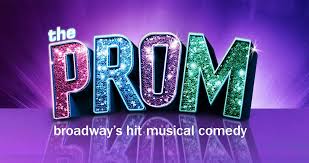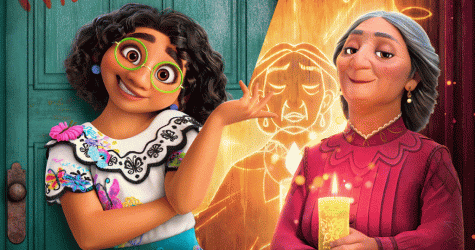A problematic performance

Expectations were high as a heart-warming Broadway musical sang its way into the Netflix spotlight, but “The Prom’s” inclusive theme did not extend to its entire cast. Many LGBTQ+ viewers were outraged as they watched yet another cisgender actor, a person identifying as a man since birth, steal a role from a member of their community.
“I feel that LGBTQ+ actors should be looked at as a first priority when casting roles that pertain to the community,” Rj Rea, senior, said.
“The Prom” is about a girl wanting to go to a school dance with her girlfriend without the Parent Teacher Association approval, which led to her finding her voice as an active member of the LGBTQ+ community. Well-known comedian, James Corden, played the movie’s lead gay male character, but being a cisgender, straight man, he is not a part the LGBTQ+ community. When the company cast Corden as gay, in the place of an LGBTQ+ actor, many were furious that the movie’s theme did not accurately represent what occurred behind the scenes, along with the actor’s past of a homophobic comedy sketch.
“This role could have gone to someone of the LGBTQ+ community who would have played the part more [authentically], and not only that, but using actors who are a part of the LGBTQ+ community is representation and shows as a society, we are progressing,” Dylan Parker, freshman, said.
“The Prom’s” casting may have sparked the first problem, but the role itself only fueled the outrage. The movie received an extensive number of reviews criticizing the “gay-face” that came with the flamboyant character Corden played. With such a diverse group of people worldwide identifying as LGBTQ+, many were appalled to see Corden’s role stuck to the cliché of gay men being extravagant, feminine, and pretentious.
“This stereotype is what contributes to men finding it harder to come out, and they [get] confused if they are gay or not because they do not fit the stereotype, even if they like men,” Chloe Branning, freshman, said.
The effort towards LGBTQ+ inclusivity spans further than “The Prom” itself, but rather into the entire movie industry. Over the past decade, television and movies have diversified casts to include a broad variety of sexual representations; however, the actors playing these roles are often underpaid, misrepresented, and typecast. Television has progressed with the characters it has put on screen, but viewers are not yet content with this partially inclusive environment, and many attempts to include these characters are seen as quick money grabs.
“I really feel like acceptance is starting to become a new normal for mainstream media, and I would like to think the world will continue to change in a positive way,” Bailey Villhauer, senior, said.
The debate as to whether straight men are bold to play LGBTQ+ characters, or if they are simply stealing the role from someone who can understand a role through authentic experience, has surged in the entertainment industry since the LGBTQ+ community first began fighting to gain a presence on screen. “The Prom’s” theme addressed the common intolerance in society against breaking gender norms, but it only incited more rage as yet another storyline that had potential was botched with stereotyping and problematic casting.

Hello, my name is Hailey, and I am a senior at Etowah. This is my fourth year on the Talon, and I am Editor in Chief. I am in a lot of various clubs at...






Leni Dubois • Jan 22, 2021 at 1:52 pm
This is an ongoing problem in the entertainment industry,as illustrated in the response of black entertainers not being properly represented. In movies ,TV, etc. It takes a bold person to speak out about these inequities. Hopefully more people will recognize and correct the problems facing our society. Thank you Hailey for speaking out.